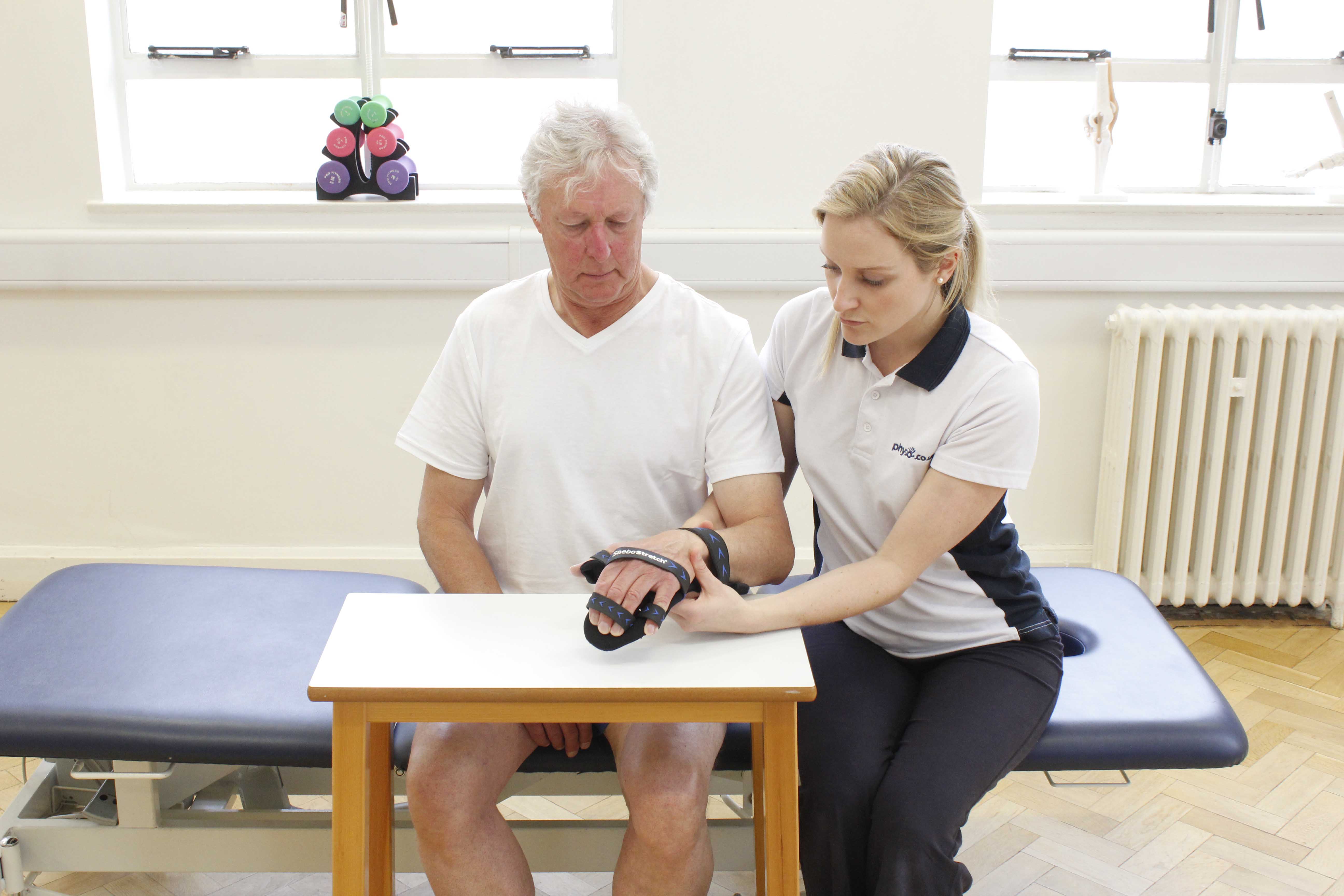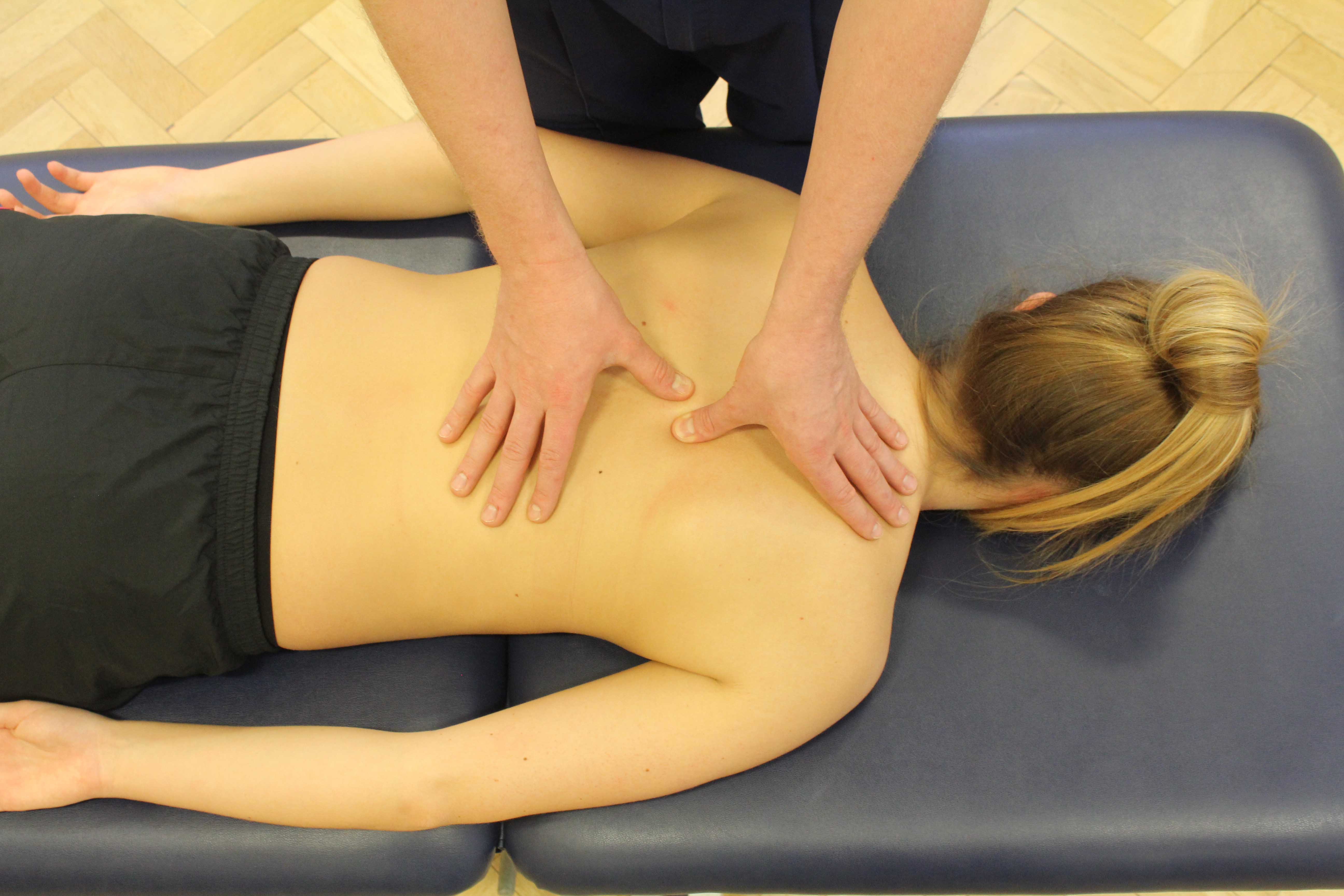There are two main types of neuralgia;
- Trigeminal neuralgia– Pain that originates from the nerves of the face
- Postherpetic neuralgia– Pain that primarily affects the trunk of the body
- Glossopharyngeal – affects throat, tonsils, tongue and part of the ear
- Occipital – affects upper neck, back of the head and behind the eyes
 Above: Use of stretches maintained with splints can help reduce painful symptoms
Above: Use of stretches maintained with splints can help reduce painful symptomsCauses of neuralgia / nerve pain
Neuralgia is caused by pressure or inflammation of the affected nerves: These disruptions of the nerves may be a result of a number of factors including;
- Chemical irritation
- Diabetes
- Infections, such as shingles, syphilis, and Lyme disease
- Porphyria – group of metabolic disorders affecting nerves and skin
- Certain medication
- Pressure on nerves by nearby structures (e.g. blood vessels or tumours)
- Swelling and irritation (inflammation)
- Trauma (including surgery)
- Chronic renal insufficiency
 Above: Mobilisations of the thoracic vertebrea to relieve pain and stiffness
Above: Mobilisations of the thoracic vertebrea to relieve pain and stiffnessWhat physiotherapy treatment will I receive for neuralgia / nerve pain?
Whether you are suffering from severe or mild bouts of neuralgia, physiotherapy is an effective method of treatment that aims to relieve symptoms, reduce your pain and restore function in the affected areas. Physio.co.uk has specialist physiotherapists who will provide you with a thorough assessment which aims to reproduce the pain in order to help identify the precise cause of your neuralgia. Following your comprehensive assessment, your physiotherapist will begin developing a personal physiotherapy programme that will focus on improving the problems you have been experiencing.
Physio.co.uk therapy uses a variety of activities that help to ease any discomfort as well as improve function, quality of life and general well-being. Your physiotherapy will include:
- Pain modalities
- Electrical stimulation
- Hydrotherapy
- Heat orice (for pain relief)
- Stress management
- Relaxation techniques
- General stretching and strengthening exercises to prevent deconditioning
- Cardiovascular exercise to improve overall health and fitness levels
- Education on how to make lifestyle changes that may affect your condition – advice on diet, managing sleep and managing rest
- Functional activities to help problems associated with daily living
Summary
Neuralgia / nerve pain is a pain that comes from problems with signals from the nerves. Neuralgia can be one of two types; trigeminal neuralgia and postherpetic neuralgia. Causes of neuralgia include trauma, chemical irritation, diabetes and medication. Symptoms primarily include mild or severe pain in affected area that may constant or intermittent. Symptoms can vary significantly in characteristics. Physiotherapy is an effective treatment method it offers a variety of strategies that aim to ease symptoms which are associated with neuralgia. Specialist physiotherapists at Physio.co.uk will focus on reducing pain, increasing mobility and improving everyday activities that may have been affected by neuralgia. Call Physio.co.uk now on 0330 088 7800 for more information or to book an appointment please contact us. You can also book an appointment online today!

 0330 088 7800
0330 088 7800


































